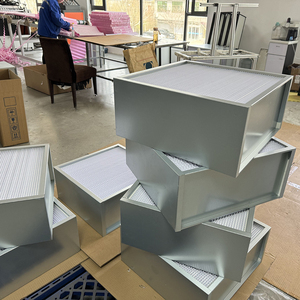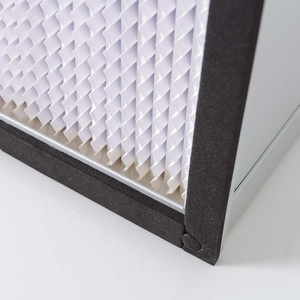Introduction to Replacement HiFi Filters
Replacement HiFi filters are essential components in high-fidelity audio systems, ensuring that sound reproduction remains clear and true to the original recording. These filters play a pivotal role in audio quality by reducing distortions and preserving sound integrity. Engineers and audiophiles alike recognize the importance of selecting the right filter for their specific needs to achieve an exceptional auditory experience.
Types of Replacement HiFi Filters
There are various types of replacement HiFi filters, each designed for specific applications and sound preferences. Understanding these types is crucial for selecting the right filter for your setup.
- Passive Filters: These filters use passive components like resistors, capacitors, and inductors to divide audio signals. They typically do not require power and are more affordable, making them widely used in various audio setups.
- Active Filters: Utilized in more sophisticated audio systems, active filters require an external power source. They offer greater flexibility and control over signal processing, ideal for professional audio environments.
- Digital Filters: Employed in modern digital audio equipment, these filters process audio signals in the digital domain, allowing for precise manipulation and superior audio performance.
- Crossover Filters: Specifically designed for multi-way speaker systems, these filters separate sound signals into different frequency ranges, ensuring that each driver receives only the frequencies it can handle.
Function and Features of Replacement HiFi Filters
The primary function of replacement HiFi filters is to enhance the audio signal while mitigating unwanted noise and interference. Here are key features that make these filters vital for maintaining sound fidelity:
- Frequency Selectivity: Filters can be designed to allow only specific frequency ranges to pass, while blocking others, which is essential for clear sound reproduction.
- Low Distortion: High-quality replacement filters minimize distortion, thereby preserving the integrity and original character of the audio.
- Bandwidth Control: They allow users to tailor the bandwidth of audio signals, providing more precise control over their sound systems.
- Compatibility: High-fidelity filters are built to integrate seamlessly with various audio equipment, ensuring that they can enhance the performance of existing systems.
Applications of Replacement HiFi Filters
Replacement HiFi filters are utilized in a variety of scenarios, reflecting their versatility and importance in audio systems:
- Home Theater Systems: They improve the sound quality of movies and music, enhancing the overall cinematic experience.
- Professional Recording Studios: Engineers use these filters to ensure that recordings accurately capture the intended sound without interference.
- Live Sound Reinforcement: Filters are critical in live sound setups to enhance clarity and prevent feedback, ensuring performance quality.
- High-End Audio Systems: Audiophiles rely on high-quality filters to precisely tune their setups, achieving the best possible listening experience.
Advantages of Using Replacement HiFi Filters
The benefits of incorporating replacement HiFi filters into your audio system are substantial. Here are some of the main advantages:
- Enhanced Sound Quality: By effectively filtering unwanted frequencies, these filters improve clarity and detail in audio playback.
- Durability: Made from high-quality materials, replacement filters are designed to withstand the demands of audio equipment and maintain performance over time.
- Easy Installation: Most replacement filters are user-friendly, allowing for quick and hassle-free installation without needing specialized tools.
- Cost-Effective Upgrades: Investing in a high-quality filter can be a more affordable alternative to overhauling an entire audio system, delivering significant improvements without high costs.













































